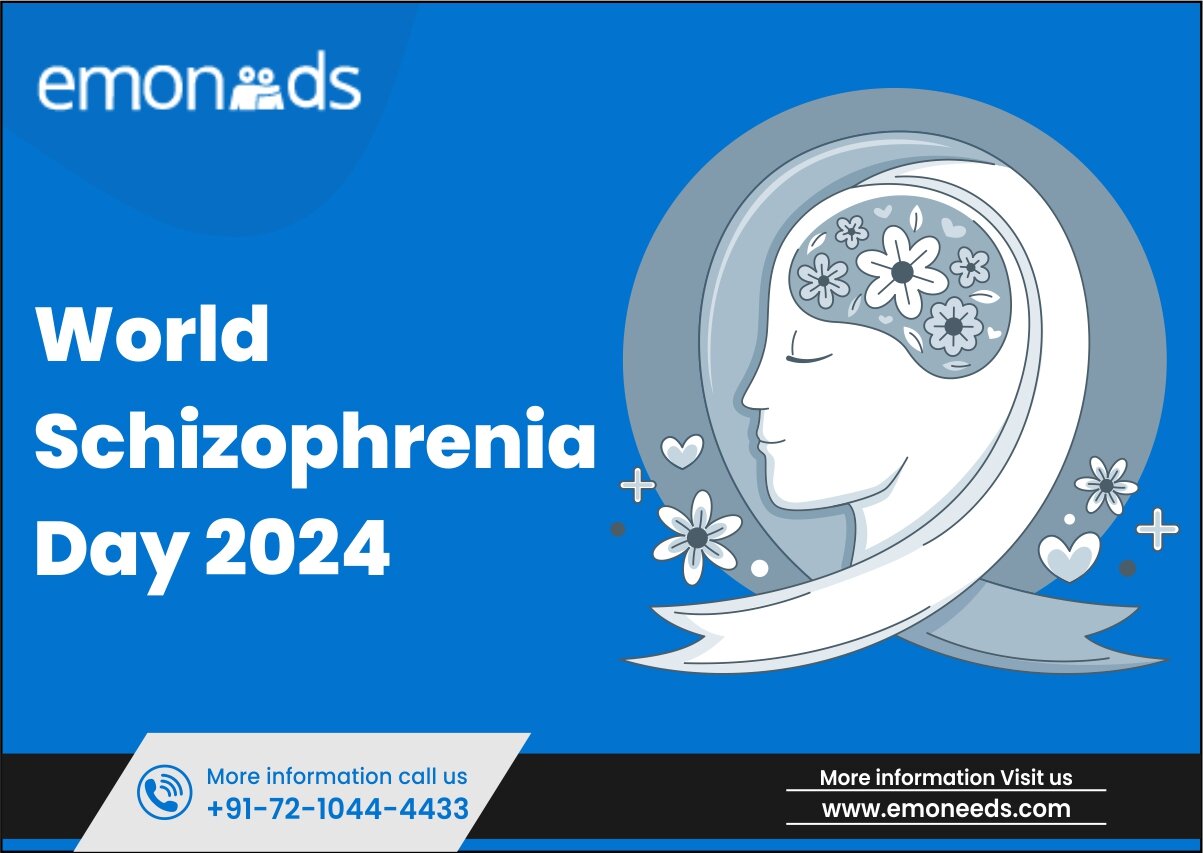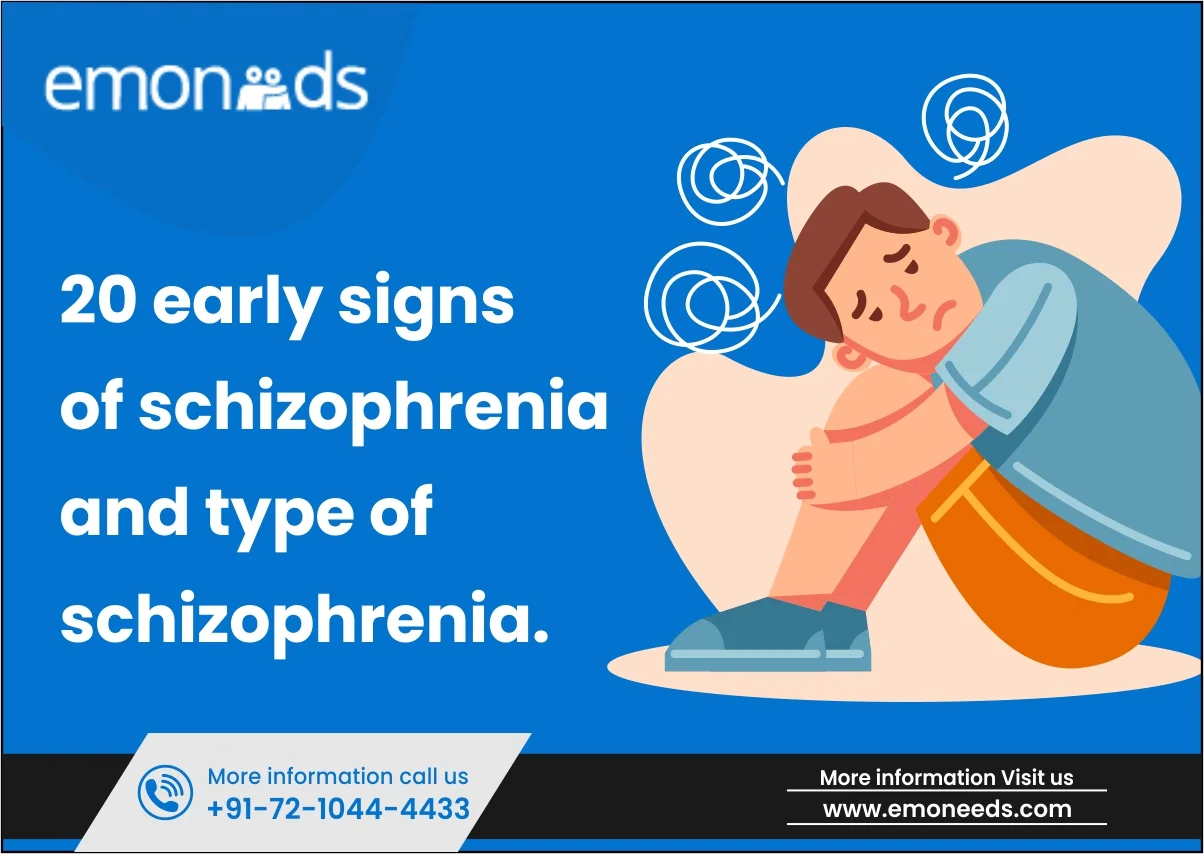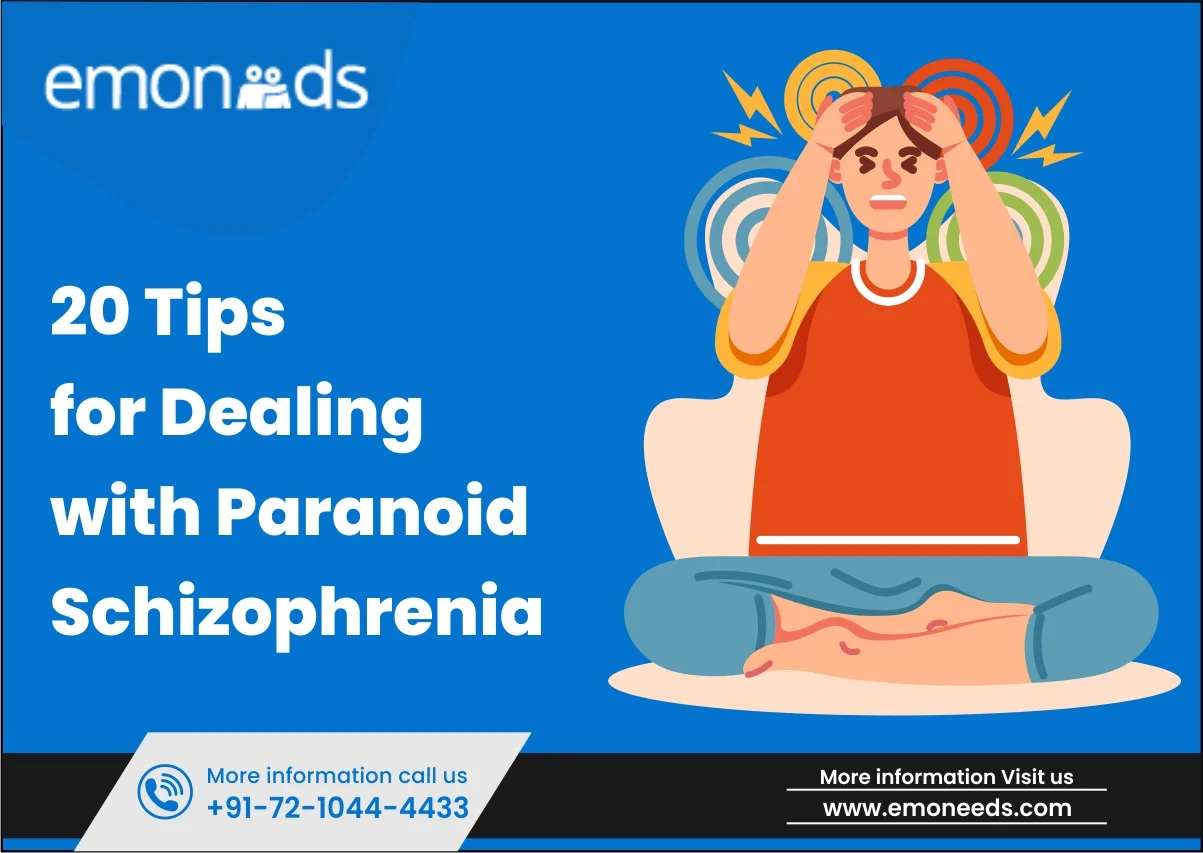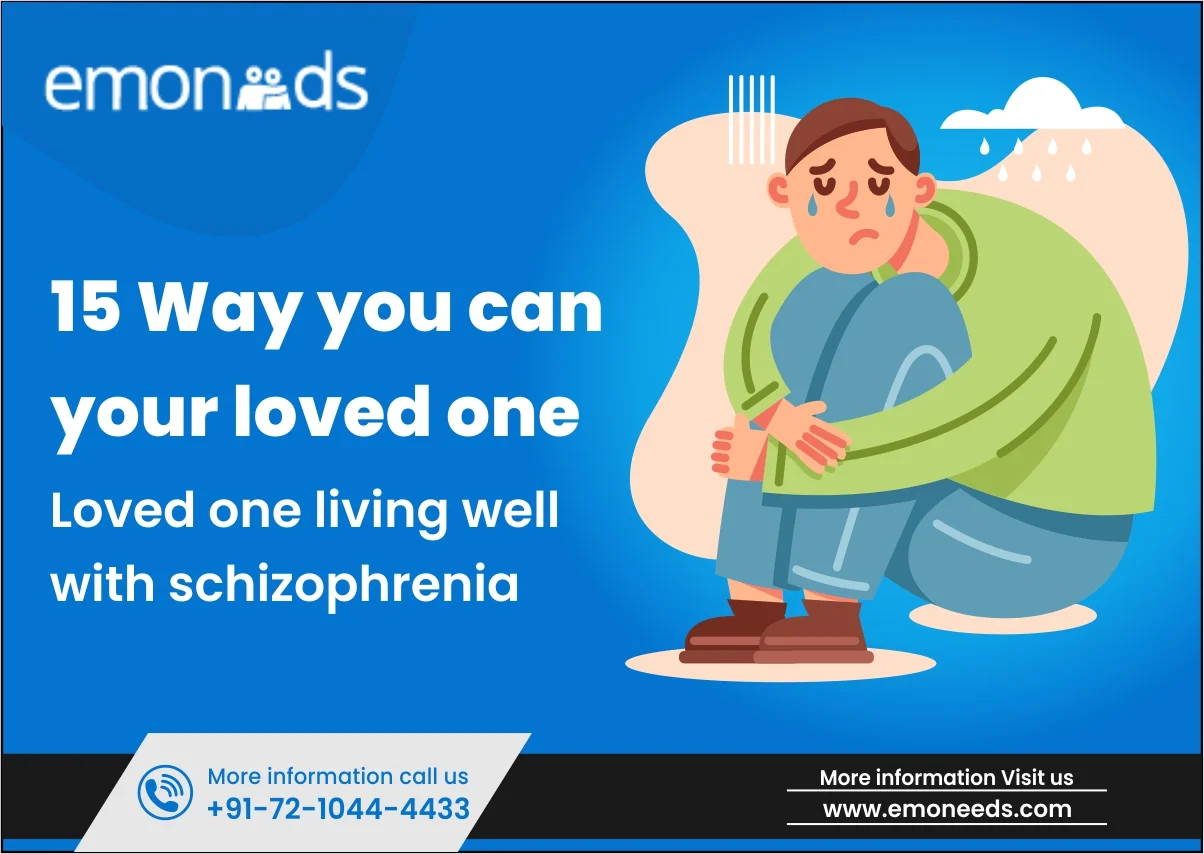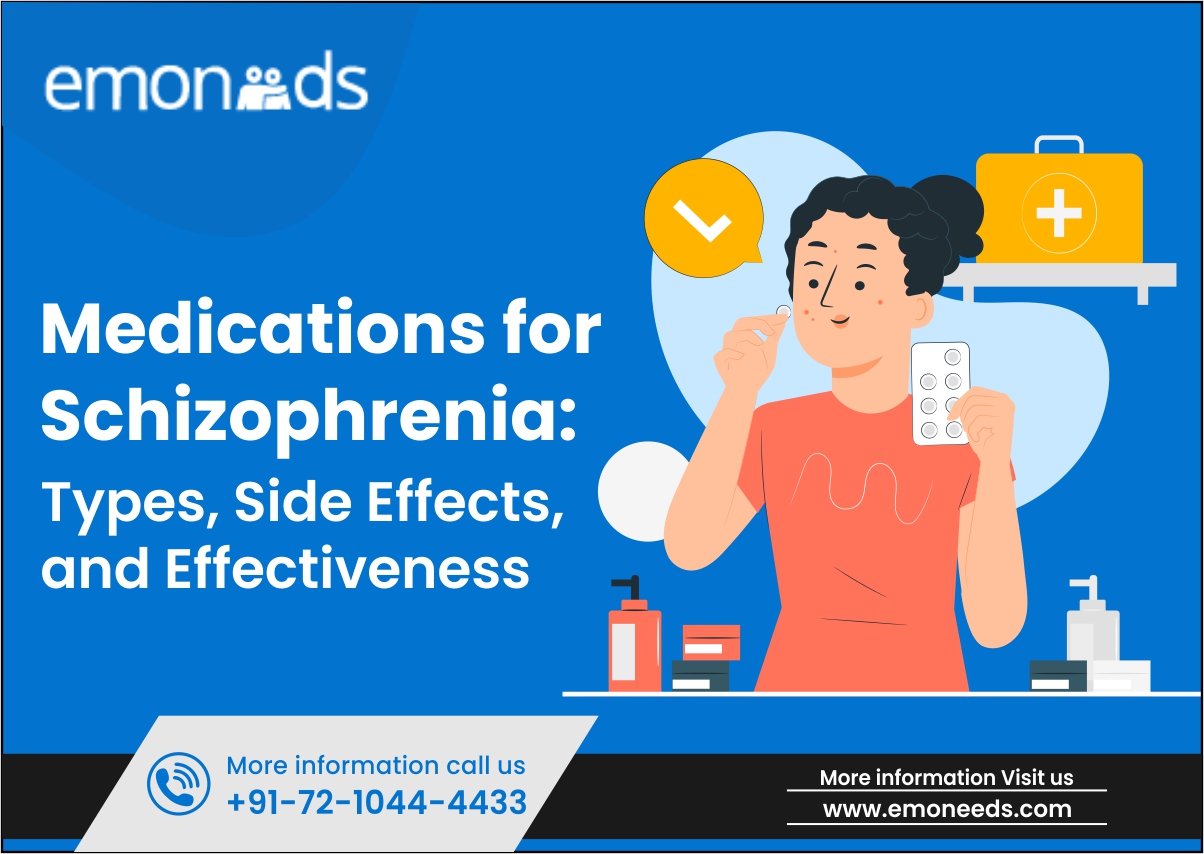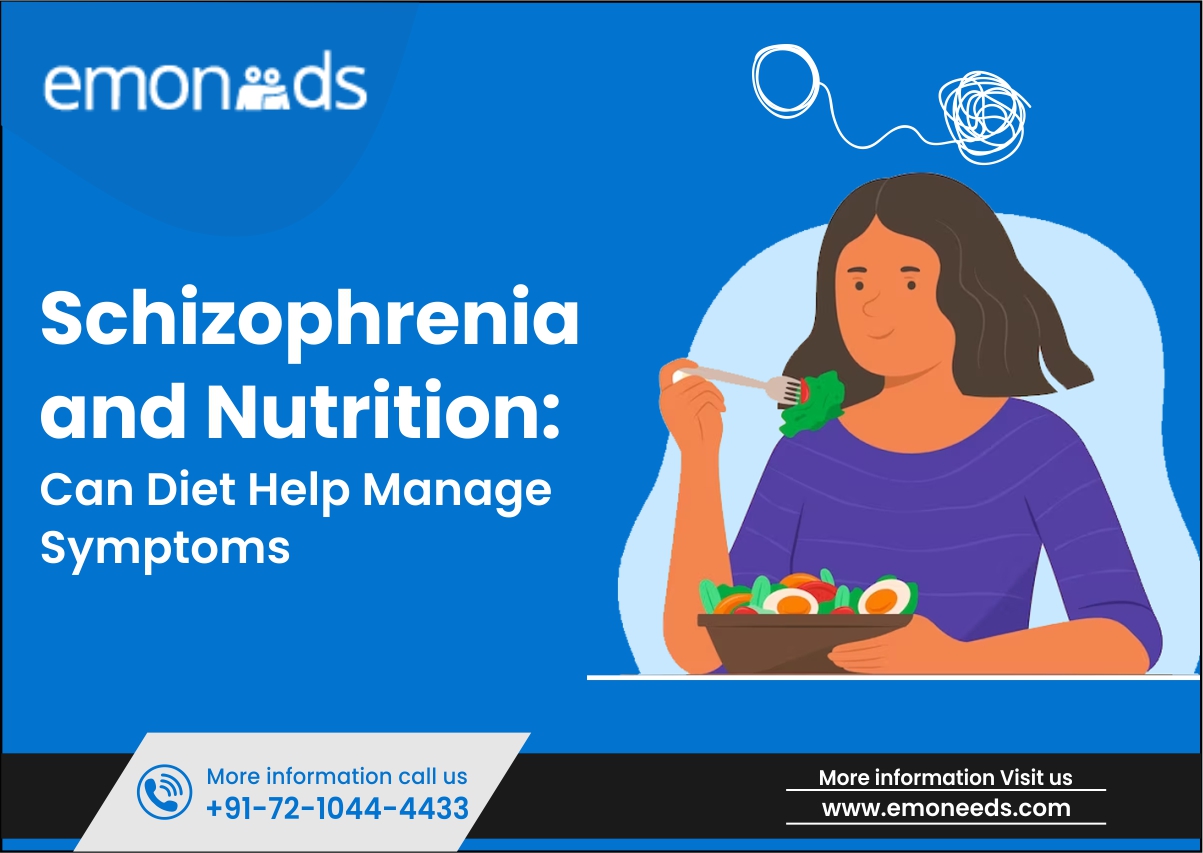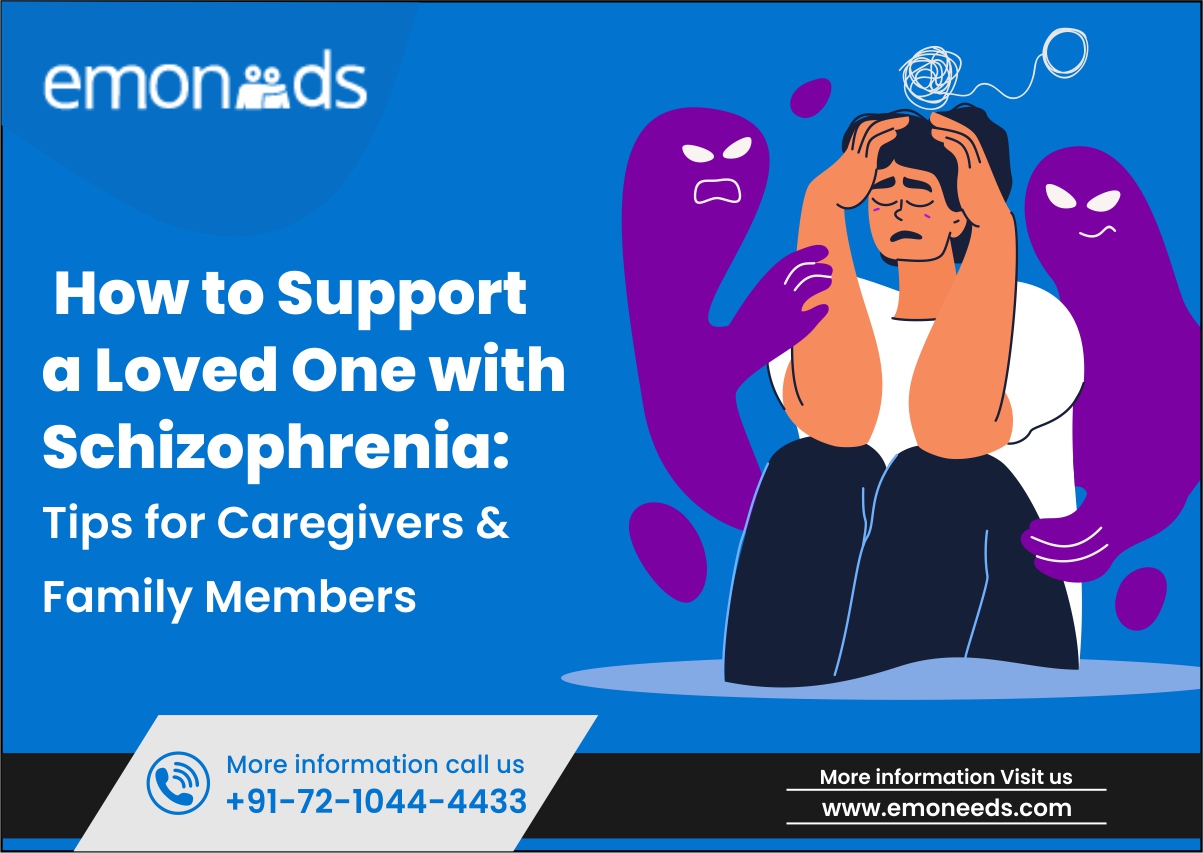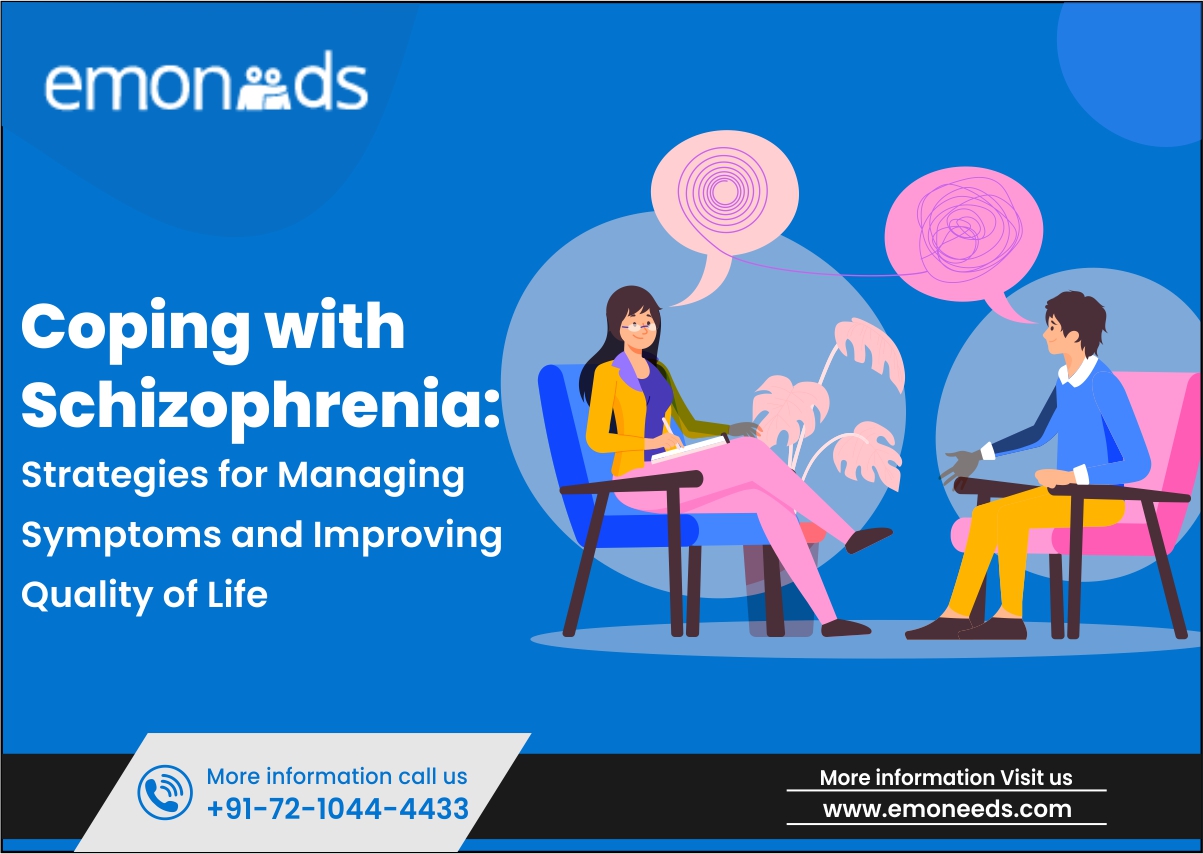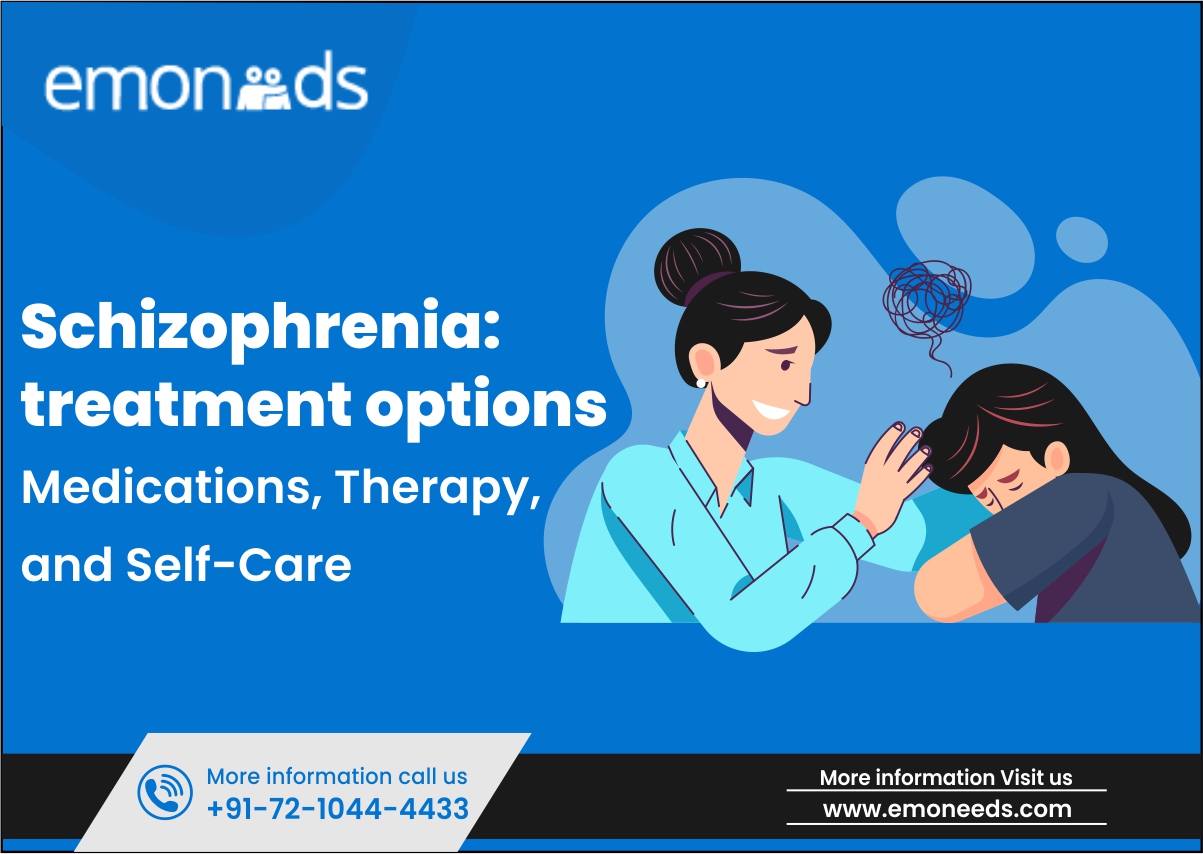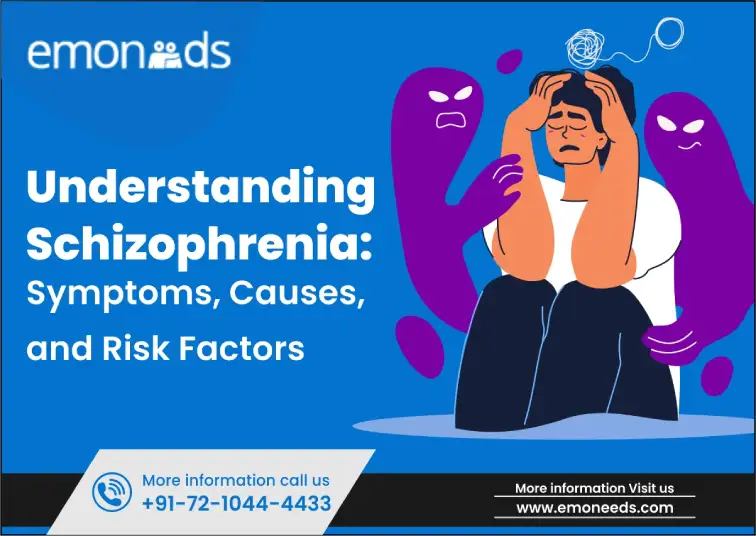
- June 6, 2023
- Saloni Kabra
- 0
Table of Contents
ToggleWhat is Schizophrenia?
Schizophrenia is a chronic mental illness that profoundly impacts a person’s thoughts, emotions, and behaviors. Individuals with schizophrenia may experience hallucinations, where they see or hear things that aren’t there, delusions, and false beliefs that are resistant to reason. Their thinking may become disorganized, making it challenging to communicate or express themselves clearly. At Emoneeds, we understand the importance of early intervention and compassionate care for individuals with schizophrenia. By creating a safe and supportive environment, we aim to empower those affected by this condition and help them navigate their journey toward recovery and well-being.Symptoms of Schizophrenia
Schizophrenia encompasses a wide range of symptoms that can significantly impact an individual’s daily life. These symptoms are typically categorized into three main groups: positive, negative, and cognitive. Positive symptoms are characterized by an excess or distortion of normal functions. They can include hallucinations, where a person perceives things that are not actually present. These hallucinations can involve hearing voices, seeing visions, or even feeling tactile sensations that aren’t there. Delusions are another common positive symptom, involving strongly held beliefs that are not reality-based. Disorganized thinking is also prevalent, making it difficult to maintain coherent conversations or connect thoughts logically. On the other hand, negative symptoms refer to a reduction or absence of typical behaviors and emotions. Individuals often exhibit social withdrawal, as they struggle to engage in social interactions or derive pleasure from activities they once enjoyed. Diminished emotional expression can make it challenging for individuals to convey their feelings outwardly, leading to a sense of emotional flatness. Reduced motivation and decreased ability to initiate and sustain activities are also common negative symptoms. Cognitive symptoms of schizophrenia impact an individual’s thinking and reasoning abilities. These symptoms can manifest as difficulties with memory, making it challenging to remember important details or conversations. Attention and concentration may be compromised, affecting the person’s ability to focus on tasks. Decision-making can become arduous as individuals may struggle to weigh options or make choices that align with their best interests. It is important to recognize that the experience of these symptoms can vary among individuals with schizophrenia. Some may primarily experience positive symptoms, while others may be predominantly affected by negative or cognitive symptoms. The severity and frequency of symptoms can also fluctuate over time, adding to the complexity of the condition.Causes of Schizophrenia
The origins of schizophrenia are complex and multifaceted, involving a combination of genetic and environmental factors. While no single cause can fully account for its development, understanding these factors can provide valuable insights into the condition. Genetic predisposition plays a significant role in schizophrenia. Researchers believe that specific genes contribute to this increased vulnerability, although the interplay between these genes and environmental factors is still not fully understood. It’s important to note that having a genetic predisposition does not guarantee the development of schizophrenia but rather increases the likelihood. Environmental factors also play a crucial role. Prenatal complications, such as maternal infections during pregnancy or prenatal malnutrition, have been associated with an increased risk of developing schizophrenia later in life. Additionally, exposure to significant stress during early life, such as childhood trauma or adverse life events, can influence the development of the condition. It is essential to approach the understanding of these causes with empathy and compassion, as they highlight the complex interplay between biological and environmental factors. Schizophrenia is not the result of personal weakness or character flaws but rather a combination of factors beyond an individual’s control.Risk Factors for Schizophrenia
A combination of risk factors influences the development of schizophrenia. Understanding these risk factors can help shed light on the complexity of schizophrenia. Family history and genetic susceptibility are significant risk factors for schizophrenia. Genetic variations and inherited traits may play a role in the vulnerability to schizophrenia. Certain prenatal and perinatal factors have also been associated with an increased risk of schizophrenia. Complications during pregnancy or birth, such as maternal infections, fetal malnutrition, or oxygen deprivation, can contribute to the development of the disorder later in life. Environmental factors can also influence the risk of developing schizophrenia. Researchers have linked urban living to a higher prevalence of the disorder, possibly due to factors such as social stress, exposure to toxins, or limited access to quality healthcare. Social isolation and lack of supportive relationships can also increase the risk. Personal weakness or choices do not cause schizophrenia; instead, it is a complex interplay of genetic and environmental factors beyond an individual’s control.Diagnosis and Treatment Options
Diagnosing schizophrenia involves a comprehensive evaluation of symptoms and medical history. Mental health professionals carefully assess the individual’s experiences, considering the presence of positive, negative, and cognitive symptoms. They also consider the duration and impact of these symptoms on daily functioning. Early intervention is crucial in managing schizophrenia effectively. Seeking professional help at the earliest signs of symptoms can significantly improve outcomes. A timely diagnosis allows individuals to access appropriate treatment and support, leading to better symptom management and improved quality of life. Treatment for schizophrenia typically involves a combination of approaches tailored to individual needs. Medication, such as antipsychotic drugs, can help alleviate symptoms like hallucinations and delusions. Therapy, such as cognitive-behavioral therapy (CBT), can assist individuals in identifying and managing their thoughts and behaviors. Psychosocial interventions, including social skills training and supported employment, aim to enhance social functioning and promote independence.Living with Schizophrenia
Living with schizophrenia can present unique challenges, but it’s important to remember that you are not alone. At Emoneeds, we want to offer encouragement and support to individuals navigating their journey with this condition. Having a strong support system is vital. Surround yourself with understanding and compassionate family members, friends, and healthcare professionals who can provide emotional support and practical assistance. Open communication with your healthcare team is key to managing your symptoms effectively and ensuring you receive the best care possible. Remember, you don’t have to face schizophrenia alone. There are resources available to support you and your loved ones. Seek support groups, community organizations, and online communities where you can connect with individuals who understand what you’re going through. These networks can provide valuable insights, coping strategies, and a sense of belonging. Living with schizophrenia is a courageous journey, and we are committed to being there for you every step of the way. With the right support, self-care, and access to resources, you can overcome challenges, thrive, and experience a fulfilling life beyond your diagnosis.Conclusion
Understanding schizophrenia is crucial for creating a supportive and inclusive society. We have explored the symptoms, causes, risk factors, diagnosis, and treatment options associated with this complex mental health condition. It is essential to seek professional help, promote early intervention, and destigmatize mental health issues. At Emoneeds, our dedication lies in providing compassionate and comprehensive care for individuals with schizophrenia and other mental health conditions. Our team of experts is committed to supporting your journey towards better mental well-being. If you or someone you know is struggling with schizophrenia, we encourage you to take that first step and reach out for help. Visit our homepage to access further information, resources, and support. Together, we can create a world where individuals with schizophrenia can lead fulfilling lives, free from judgment and with the necessary tools to thrive. Remember, you are not alone. Emoneeds is here to support you on your path to recovery and to provide the care you deserve. Take the first step towards a brighter future by reaching out today.FAQs
What is the main cause of schizophrenia?
The main cause of schizophrenia is not fully understood, but it’s believed to result from a combination of genetic, environmental, and brain chemistry factors. Genetics plays a significant role, as having a close family member with schizophrenia increases the risk. Environmental factors like stress or exposure to toxins during early brain development can also contribute. Additionally, imbalances in brain chemicals, particularly dopamine, may play a role in the development of symptoms.
What is the best treatment for schizophrenia?
The best treatment for schizophrenia typically involves a combination of antipsychotic medications, therapy, and support from mental health professionals. Antipsychotic drugs help manage symptoms like hallucinations and delusions. Therapy, such as cognitive-behavioral therapy, can assist with coping skills and understanding the illness. Support from family and community resources is also vital for managing daily challenges. It’s essential to work closely with a healthcare team to find the most effective treatment plan tailored to individual needs.
What are 5 of the main symptoms of schizophrenia?
Here are the five main symptoms of schizophrenia:
- Hallucinations: Seeing, hearing, or feeling things that aren’t real.
- Delusions: Strongly held beliefs that are not based in reality.
- Disorganized thinking: Trouble organizing thoughts, making sense, or following conversations.
- Disorganized speech: Difficulty communicating clearly or coherently.
- Social withdrawal: Avoiding friends, family, or social situations.
If you or someone you know experiences these symptoms, it’s important to seek help from a healthcare professional.
Can a person recover from schizophrenia?
Yes, people can recover from schizophrenia with treatment. Medications, therapy, and support can help manage symptoms and improve functioning. Recovery looks different for each person, but many can lead fulfilling lives with proper care. Early intervention is key to better outcomes. It’s important to stay connected with healthcare providers and loved ones for ongoing support. With dedication and support, many individuals can achieve significant improvement and lead productive lives.
Is schizophrenia curable?
Schizophrenia isn’t curable, but it’s treatable. With medication and therapy, many people can manage symptoms and live fulfilling lives. Treatment focuses on reducing hallucinations, delusions, and other symptoms. It’s essential to work closely with healthcare professionals to find the right treatment plan. While there’s no magic cure, treatment can significantly improve the quality of life for those with schizophrenia. It’s important to stay hopeful and seek support from loved ones and mental health professionals.



